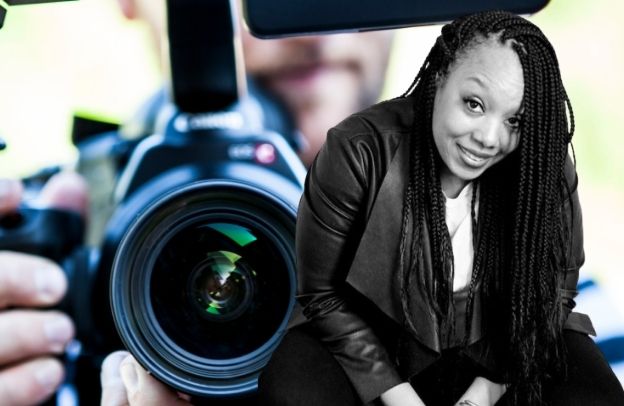Unlocking the Power of Our Cultural Heritage In Today’s World – Lateefat Odunuga

Have you ever wondered why a good story can captivate a room, spark a movement, or close a deal when simple facts fall flat? It’s because stories are not just entertainment; they are the ancient code of human connection, the very language our brains are built to understand. For entrepreneurs, especially within the African diaspora, mastering this code is the key to standing out, building a loyal community, and creating a lasting legacy.
Learn How to Leverage Your Story through our Story To Asset Framework.
In a powerful episode of The Obehi Podcast, host Obehi Ewanfoh sat down with Lateefat Odunuga, a Thought Leader, Radical Scholar, and self-described “Story Psychologist.”
See the full interview with Lateefat Odunuga
Together, they explored the profound link between psychology, storytelling, and our cultural heritage.
Lateefat’s work, which spans from community psychology to founding organizations like One Young African and LITERAREACH, illuminates a critical truth: to build our future, we must first understand and own the stories of our past. This conversation provides a vital roadmap for anyone looking to transform their personal narrative into their most powerful asset.
The Science of Connection: Why Your Brain is Wired for Stories
Before we can use stories, we must understand why they work. Lateefat, a doctoral candidate in community psychology, breaks it down with beautiful simplicity.
Psychology, she explains, is the scientific study of human behavior. It’s about “describing, understanding, and explaining” why we do what we do. A psychologist doesn’t guess; they observe patterns.
See also See also Dangote’s Welcome Disruption (Reflecting On The Irony Of Nigerian Petroleum) By Austin Isikhuemen
“Every time they wake up at 7:00 a.m. and they’re not able to have their morning coffee, they get to work late and they get angry,” she illustrates. “We study these patterns of behavior over time to be able to say, ‘Oh, I see why this is happening.’”
This same scientific lens reveals why storytelling is so effective. It’s not magic; it’s neuroscience. “As human beings, we are wired for stories,” Lateefat states. When we hear a story, our brains react in a way they simply don’t to a list of facts. Different parts of the brain light up, working in concert to process the information.
- Emotional Engagement: The amygdala, our brain’s emotional center, reacts to the feelings in a story, whether traumatic or joyful. This creates an emotional imprint, making the message memorable.
- Sensory Experience: When a story describes an action or sensation, the corresponding motor or sensory cortex in our brain activates. We don’t just hear the story; we experience it.
- Neural Coupling: The brain of the listener begins to mirror the brain of the storyteller. This creates a powerful sense of connection and empathy, the foundation of trust and influence.
“When you hear good stories, your brain is ready,” Lateefat emphasizes. “When you’re hearing a boring story, there’s also a way your brain will react.” For entrepreneurs, this is a game-changing insight.
Your marketing, your leadership, and your sales pitches are all forms of storytelling. By understanding the psychology behind it, you can craft narratives that don’t just inform but resonate on a deep, neurological level.
This is the core principle of Obehi’s Story to Asset Framework, which guides leaders to structure their narratives for maximum impact and authentic connection.
The Library of Our Ancestors: Storytelling as Cultural Preservation
Long before books and screens, our cultures were preserved and passed down through the spoken word. Oral storytelling was the library, the classroom, and the community center all in one. Lateefat fondly recalls her own childhood in Lagos, Nigeria, where stories were a central part of learning and development.
“Every child was requested to tell the challenges that the protagonist faced, the lessons that they were able to pick from the stories, and how would they see themselves better as better agents of society just by hearing the story,” she shares.
See also See also Bridging Borders Through Stories: How Obehi Ewanfoh Uses Cultural Exchange to Empower the African Diaspora
This practice did more than entertain; it built up identity. It taught values, explained history, and gave each child a chance to see themselves within a larger collective narrative. It was a living example of Ubuntu, the philosophy that “I am because we are.”
In today’s fast-paced, digital world, it’s easy to lose touch with these foundational narratives. For the African diaspora, this presents a unique challenge: how do we stay connected to our roots when we are spread across the globe?
The answer lies in consciously reviving these traditions. To know the stories of your culture is to carry your heritage within you. It provides a compass for your identity, resilience in the face of adversity, and a deep well of wisdom to draw upon in your personal and professional life.
This is the essence of moving from roots to relevance. The proverbs of our grandmothers and the legends of our ancestors are not just relics of the past; they are powerful tools for navigating the complexities of the present. By embracing them, we build a bridge between our life and legacy, ensuring that the wisdom of our heritage continues to inform and inspire generations to come.
The Healing Narrative: Transforming Your Story into Strength
Beyond cultural preservation, storytelling holds immense power for personal healing and transformation. Recognizing this, Lateefat has developed innovative platforms that apply psychological principles in a community-focused way. Her work is a testament to the idea that true self-mastery begins with confronting and reshaping our own narratives.
She founded My Story Café, a space where people gather with “their tea, coffee, and water to discuss several story prompts and the lessons they learned from it.” This simple act of sharing and listening fosters deep connection and breaks the isolation that so many experience. It rejuvenates the culture of listening as a form of knowledge and awareness.
Even more groundbreaking is My Story Clinic, a virtual space designed for crisis resolution. “I opened the first virtual story clinic to attend to my clients in a very engaging and interesting manner, away from the usual clinical pattern,” Lateefat explains.
See also Helen Adeosun: Exploring The Story of Founder & CEO of CareAcademy From Boston to the Boardroom
Here, individuals are assisted in “using their own stories for personal transformation and healing.” This approach recognizes that the path to wellness often involves making sense of our past and authoring a new, more empowering chapter for our future. It’s a powerful alternative for those seeking healing through connection and narrative reflection.
This work is a profound reminder that every entrepreneur’s journey is a story of overcoming challenges. Your struggles are not liabilities; they are the source of your greatest lessons and your most relatable content. When you learn to own your story, you not only heal yourself but also give others the permission and the tools to do the same.
Take Action: Become the Storyteller of Your Legacy
Understanding the power of storytelling is one thing; applying it is another. The insights from Lateefat Odunuga and The Obehi Podcast are not just for intellectual curiosity, they are a call to action.
- Listen with Intent: Begin by becoming a student of the stories around you. Schedule time to talk with elders in your family. Ask your clients not just about their business needs, but about their journey. Every conversation is an opportunity to gather wisdom and deepen your understanding of the human experience.
- Share with Authenticity: Start sharing your own story. You don’t need a massive stage. Share it in a social media post, in a team meeting, or with a potential client. Talk about a challenge you overcame and the lesson you learned. This practice builds confidence and creates genuine collaboration and connection. For a structured approach, explore Obehi Ewanfoh’s programs, designed to help you craft your story into a strategic asset.
- Create a Space for Stories: Build your own version of a “Story Café.” This could be a monthly client spotlight, a mastermind group focused on shared experiences, or an online forum for your community. By facilitating storytelling, you position yourself as a leader who values connection over transactions.
The journey of an entrepreneur is the journey of a storyteller. You are constantly shaping a narrative, whether it’s about your brand, your vision, or your own capacity to succeed. By embracing the psychology of stories and connecting to the deep wells of your cultural heritage, you can build a business and a life that is not only successful but also meaningful.
See also A Brief History of Verona: My Verona Journey Series, Part 1
To dive deeper into this topic, listen to the full conversation with Lateefat Odunuga on The Obehi Podcast, which features over 1,000 interviews with global leaders.
For more articles on harnessing the power of your narrative, explore the extensive library of over 2,000 articles at AClasses Academy. Your story is waiting to be told. It’s time to own it, share it, and build your legacy with it.





